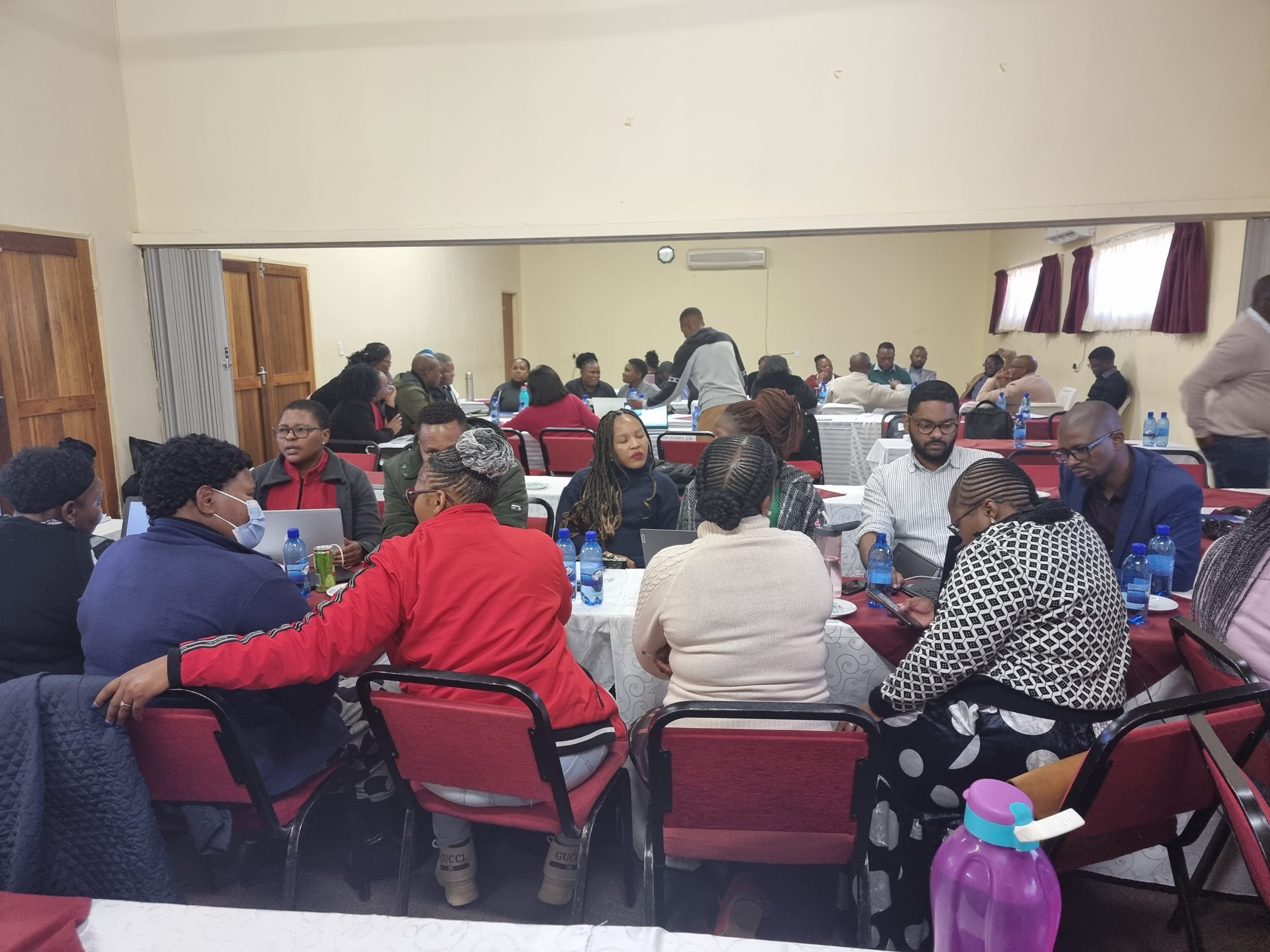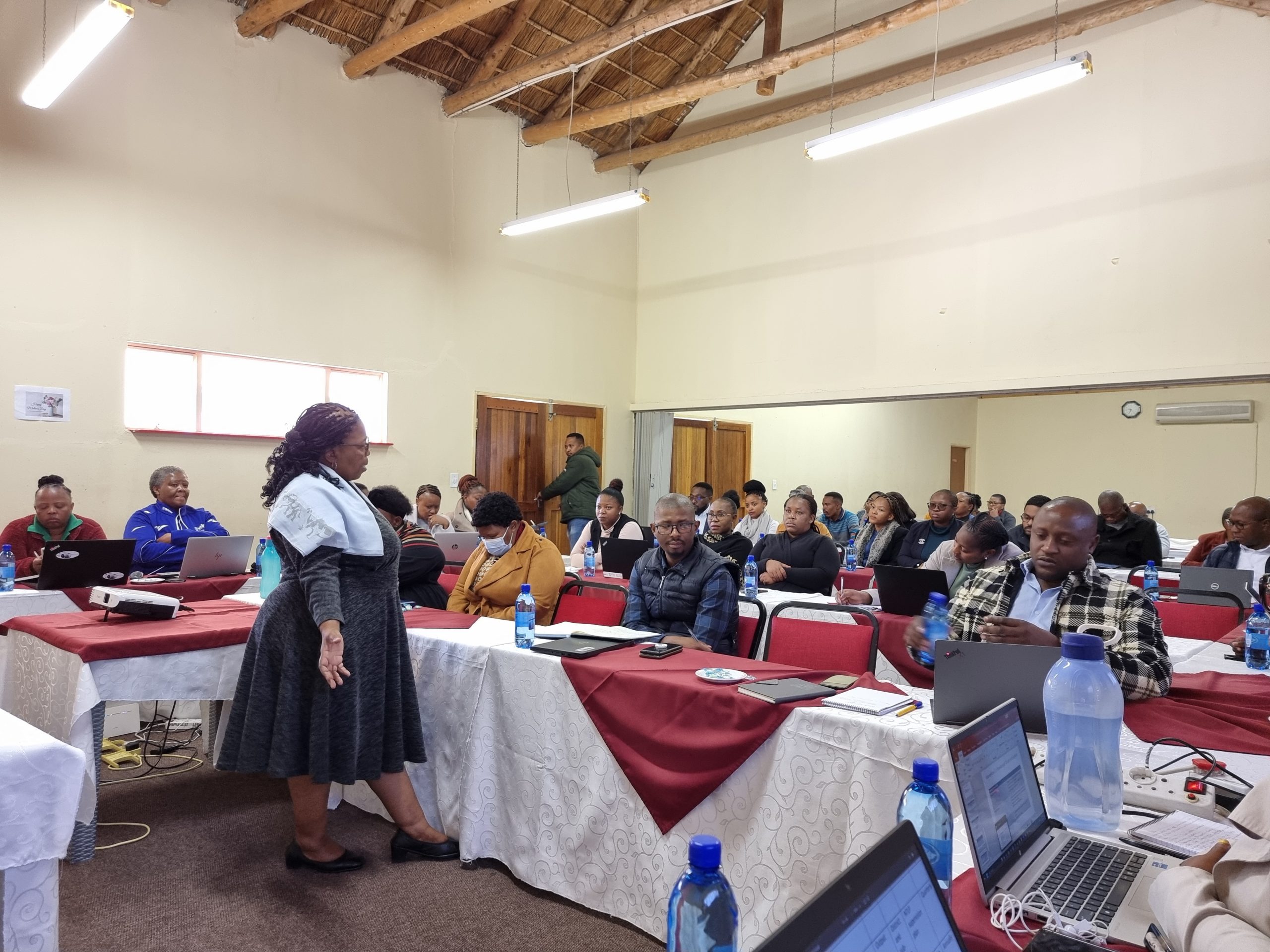Utilizing the People-Centred Framework, the Lesotho National Tuberculosis & Leprosy Programme is in the final stages of approving its’ new 5-year TB National Strategic Plan for 2023 – 2028. The draft TB National Strategic Plan, to be completed by the end of July 2023, forms part of the joint TB and HIV strategic plan for Lesotho. This process has been a resounding success and a fantastic example of the use of the People-Centred Framework! We are immensely grateful for all of the work undertaken by the Lesotho Ministry of Health and the National Tuberculosis & Leprosy Programme, as well as all of the stakeholders and consultants who supported and contributed to this process.
Taking this opportunity to look back at the process, we want to share our insights into the key factors that contributed to its’ success:
- The adoption of the WHO recommended People-Centred Framework approach
- The participation of key leaders and technical expertise to support the process
- The support from, and active engagement of, the stakeholders
The People-Centred Framework places ‘data driven decision making’ within the framework of a clearly defined process to identify, priorities, and address health challenges within TB National Strategic Plans. The People-Centred Framework approach is an evolution in the development of TB National Strategic Plans. Decisions are based firmly on the consolidation and analysis of the National TB Programme data, and data from other sources, to create a holistic overview of the country’s TB epidemiology. This data is used to identify, and address, gaps in the TB prevention and care program, rather than relying purely on individual insights or views.
Another core element of the People-Centred Framework is to look not just at the data from patients who have received treatment, but also to seek out and model the needs and perspectives of persons living with TB who:
- do not access the health system;
- seek care but are not diagnosed or notified; and/or
- are diagnosed as having a TB infection but are not successfully treated.
This analysis is used to create a risk profile for the general population based on vulnerability to TB and access to the health system.
This data driven approach also links directly into the Global Fund application process. By optimizing and costing interventions, and modeling their impacts, as part of the TB National Strategic Plan development process, the respective ministry of health is systematically generating the data required to support their Global Fund application.
The People-Centred Framework approach emphasizes the importance of, and relies on, local ownership, and the engagement, and active participation, of stakeholders in the National TB Strategic Plan development process.
As noted, these elements are reinforced through an evidence based approach, establishes a framework and process for the development of TB National Strategic Plans:

NSP Roadmap
The Lesotho National Tuberculosis & Leprosy Programme translated the People-Centred Framework approach to create a tailored process for the development of their TB National Strategic Plan:
After the initial introduction to the People-Centred Framework, Dr. Llang Bridget Maama-Maime, Thato Raleting, Mayema Anatole Mayema, and Moipone Leteba from Lesotho’s National TB & Leprosy Programme), worked with Dr. Limakatso Lebina, and Dr. Mupeta Francis (WHO Lesotho) to create a roadmap for the development of Lesotho’s new TB National Strategic Plan. KNCV Tuberculosis Foundation supported this work. The roadmap set out a strategic overview of the major elements of the People-Centred Framework process: including the agreed actions, deliverables and the timeline for completion of the TB National Strategic Plan.
The National TB & Leprosy Programme also coordinated the development process with the experts (simultaneously) developing the HIV National Strategic Plan.
The roadmap was completed in April 2023 and was submitted to, and approved by, the Lesotho Ministry of Health.
Establishing a core team to conduct the situational analysis
 In accordance with the People-Centred Framework approach, Dr. Llang Bridget Maama-Maime, established a TB Technical Working Group, led by Dr. Limakatso Lebina, with key stakeholders in the area of TB and HIV in Lesotho. This TB Technical Working Group was tasked with overseeing the development process.
In accordance with the People-Centred Framework approach, Dr. Llang Bridget Maama-Maime, established a TB Technical Working Group, led by Dr. Limakatso Lebina, with key stakeholders in the area of TB and HIV in Lesotho. This TB Technical Working Group was tasked with overseeing the development process.
The stakeholders include representatives from the Lesotho Ministry of Health and National AIDS Commission, WHO Lesotho, USAID, Global Fund, Partners in Health, Jhpiego, The Elizabeth Glaser Pediatric AIDS Foundation, the Clinton Health Access Initiative, Riders for Health, Baylor Lesotho and the Centers for Disease Control and Prevention.
The TB Technical Working Group met weekly and received technical support from:
KNCV Tuberculosis Foundation, who provided overall technical support during the development process in line with the Patient Centered Framework approach. KNCV Tuberculosis Foundation also provided guidance during the weekly TB Technical Working Group discussions and facilitated the Stakeholder Workshops (see below).
Dr. Arinaitwe Moses, consultant, who advised on the monitoring and evaluation framework.
Dr. Lucy Cunnama, consultant, who supported the costing assessment.
Stakeholder Consultations
 In line with the People-Centred Framework approach, Lesotho’s National Tuberculosis & Leprosy Programme held two Stakeholder Workshops with stakeholders. The participants included representatives from the stakeholders in the TB Technical Working Group and were also joined, in the 1st Stakeholder Workshop, by Dr. Mupeta Francis, of the WHO (Lesotho). KNCV Tuberculosis Foundation facilitated both Stakeholder Workshops.
In line with the People-Centred Framework approach, Lesotho’s National Tuberculosis & Leprosy Programme held two Stakeholder Workshops with stakeholders. The participants included representatives from the stakeholders in the TB Technical Working Group and were also joined, in the 1st Stakeholder Workshop, by Dr. Mupeta Francis, of the WHO (Lesotho). KNCV Tuberculosis Foundation facilitated both Stakeholder Workshops.
The goal of these workshops was to identify (based on the situation analysis) key challenges related to TB prevention and care within the National Tuberculosis & Leprosy Programme. The stakeholders then worked to prioritize these challenges and develop interventions to be incorporated into the new National TB Strategic plan.
In accordance with the People-Centred Framework approach, the decisions in the Stakeholder Workshops were taken strictly in the basis of consensus. At the end of each stage of the process, all proposals were put to the stakeholders for approval before moving on to the next stage.
The 1st Stakeholder Workshop was held on 27 – 28 April 2023. During this workshop the participants focused on undertaking an assessment of the existing National Tuberculosis & Leprosy Programme from the perspective of persons living with TB who may not have access to the health system, or may not have received (successful) treatment. This analytical approach was used to identify the challenges to be addressed in the new TB National Strategic Plan. The participants then worked to develop possible interventions to address these issues in the context of the public health system and the challenges in Lesotho.
The second Stakeholder Workshop was held on 15- 17 May 2023 and attended by with close to 50 stakeholder representatives. This workshop commenced with the presentation of the Lesotho situation analysis and the issues identified during the data consolidation and analysis process.
The workshop participants then used this situation analysis and the recommendations from the 1st stakeholder consultation workshop to develop a prioritized list of challenges to be addressed as part of the new TB National Strategic Plan. Once a prioritized list of challenges had been agreed, the participants undertook an in-depth root cause analysis to understand the causes of the specific gaps in the program, and worked on the optimization of potential interventions.
M&E Framework
In accordance with the Patient-Centered Framework, these interventions were broken down into discrete, clearly defined, and achievable actions.
The last day of the 2nd workshop focused on the creation of an effective monitoring and evaluation system for the new TB National Strategic Plan. Dr. Arimo Moses, the monitoring and evaluation consultant, led the stakeholders in the analysis of the proposed interventions and the development of a practical monitoring and evaluation framework, including performance metrics and the implementation process.

Following the Stakeholder Workshops, Dr. Arimo Moses, working with the assistance of KNCV Tuberculosis Foundation, continued to develop, and refine, the monitoring and evaluation framework and the performance metrics. This framework and the metrics were integrated into the Lesotho’s TB National Strategic Plan for 2023 – 2028.

A prioritised and costed National Strategic Plan

Lesotho’s TB National Strategic Plan was drafted utilizing the input from the Stakeholder Workshops and the monitoring and evaluation framework. The plan was drafted under the leadership of Dr. Limakatso Lebina, and with the support of KNCV Tuberculosis and Dr. Arimo Moses.
The TB National Strategic Plan is in the final stages of completion is expected to receive final approval by 31 July 2023.
As a follow on from the development of the TB National Strategic Plan, Dr. Lucy Cunnama, with technical expertise and support from Carel Pretorius from Avenir Health, will cost and model the interventions, utilizing WHO’s revised Integrated Health Tool (including the use of an inbuilt state space model developed by Pete Dodd, University of Sheffield.
We would like to thank all of those who have assisted in the development of Lesotho’s new TB National Strategic Plan and specifically like to acknowledge the support and hard work of the National TB & Leprosy Programme, Lesotho, the Lesotho Ministry of Health, Dr. Llang Bridget Maama Maime, Dr. Limakatso Lebina, Dr. Mupeta Francis, of WHO Lesotho, and the independent consultants: KNCV Tuberculosis Foundation (Dr. Carel Joseph), Dr. Arimo Moses, Dr. Lucy Cunnama, and Carel Pretorius from Avenir Health.
We look forward to sharing more updates on our future progress!
The People-Centred Framework for TB programming was jointly developed by the Bill and Melinda Gates Foundation, The Royal Tropical Institute Netherlands (KIT), the World Health Organization, Linksbridge, TB Modeling and Analysis Consortium, and refined by KNCV Tuberculosis Foundation.The goal of the initiative is provide countries with the necessary tools and approaches to optimize their National Strategic Plans in line with the End TB Strategy, Sustainable Development Goals and country commitments. The goal of the initiative is provide countries with the necessary tools and approaches to optimize their National Strategic Plans in line with the End TB Strategy, Sustainable Development Goals and country commitments. The framework is a process for country-level planning with four primary planning steps centered on answering the questions in the figure below (right click the image to view a larger size in a new tab):
 The framework is a process for country-level planning with four primary planning steps centered on answering the questions in the figure below:
The framework is a process for country-level planning with four primary planning steps centered on answering the questions in the figure below:
